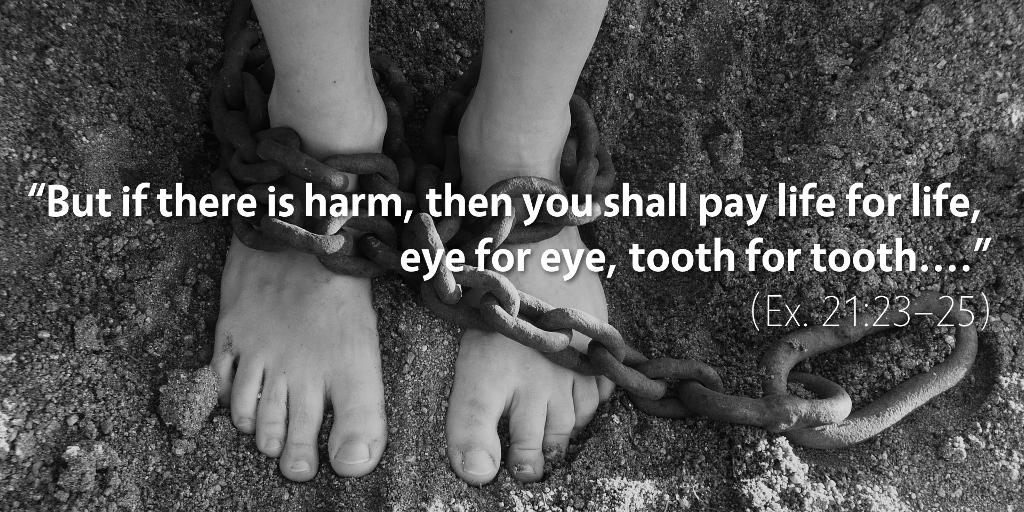Bible Readings for March 10th
Exodus 21 | Luke 24 | Job 39 | 2 Corinthians 9
Our society may not have a more intellectually lazy cliché than “An eye for an eye leaves the whole world blind.” The phrase itself is clever, vividly portraying one eye put out after another in an unending, bloodthirsty, universal quest. But is unrestrained vengeance really how the law teaches us to love our neighbor as ourself?
Not in the least. In fact, unlimited vengeance is exactly what the “eye for an eye” laws forbid.
Before these laws, people would retaliate for crimes committed against them however they saw fit, which typically caused a back-and-forth escalation as each party tried to do something worse than what was done to him.
Laws like the ones in Exodus 21:23–25 actually placed limitations on the kind of vengeance someone could inflict for a crime committed against him: “But if there is harm, then you shall pay life for life, eye for eye, tooth for tooth, hand for hand, foot for foot, burn for burn, wound for wound, stripe for stripe.” The point was that if someone knocked out your tooth, you weren’t allowed to kill him, and if he burnt your hand, you weren’t allowed to cut off his foot. For punishments to be just, they had to be proportionate responses to the crime.
So, this law demands that we avoid plotting revenge against our neighbor who has wronged us in some way. Or, it means we need to think carefully before entering into a lawsuit and asking for a disproportionate amount of compensation for our “damages.” Ultimately, this law should lead us to recognize our own limitations in seeking justice for ourselves.
But didn’t Jesus challenge the “eye for an eye” law in the Sermon on the Mount in Matthew 5:38–42? Yes he did, but to understand what Jesus was saying, we need to keep two ideas in mind.
First, Jesus was talking about how we should not retaliate against those who harm us. He was not addressing how governments ought to govern their citizens. Paul clarifies this well, explaining in Romans 13:1–6 that God himself put the sword in the hands of civil governments to protect those who do good and to execute God’s own vengeance against wrongdoers.
Second, Jesus wasn’t abolishing the “eye for an eye” law; in fact, he was intensifying it. All of his “You have heard it said” statements in the Sermon on the Mount were strengthening statements, taking the laws against murder, lust, divorce, false oaths, or loving our neighbors and pushing them to a new degree. With “eye for an eye,” Jesus was acknowledging and increasing the limitation on retaliation by telling us to turn our other cheek rather than seeking vengeance.
Which neighbors do you need to love as yourself by abandoning your desires for taking revenge against them?
Podcast: Play in new window | Download (4.7MB) | Embed
Subscribe: Apple Podcasts | RSS | More

Scripture quotations are from The Holy Bible, English Standard Version copyright © 2001 by Crossway Bibles, a division of Good News Publishers. Used by permission. All rights reserved.


